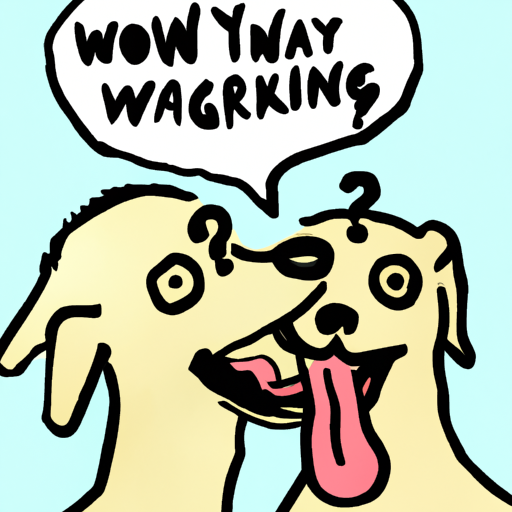As a loving caregiver to your four-legged friend, you’ve probably wondered why your dog has a tendency to give you those sloppy kisses. It’s a behavior that’s endearing and sometimes a little puzzling. In this article, we will delve into the science and psychology behind why dogs lick you.
1. Canine Communication and Affection
Firstly, it’s important to understand that dogs primarily use their bodies to communicate. Your dog lacks the language skills you possess, so they use a variety of physical cues to express themselves. Licking is just one form of this communication.
When your dog licks you, it’s often a sign of affection. They’re showing you love in one of the most natural ways they know how: by grooming you. This behavior is instinctive and can be traced back to their wolf ancestors, who would lick each other as a way to strengthen social bonds within the pack.
2. The Comfort of Familiar Scents
Dogs have an incredible sense of smell. They use this sensory superpower to understand their world. When your dog licks you, they’re also getting a taste of your unique scent. This can be comforting to them, especially if they’re feeling anxious or stressed.
Think about it this way:
- You come home from a long day at work
- Your dog runs up to you and starts licking your hands
- They’re picking up the scents of your day, absorbing the different places you’ve been and things you’ve touched
- This helps them feel connected to you and reassures them about their place in your life
3. Encouraging Attention and Interaction
Another reason dogs lick is to get your attention. In the dog world, licking is a submissive behavior that can signal a desire for attention or interaction.
| Behavior | Meaning |
|---|---|
| Licking face | Seeking attention, mimicking wolf puppy behavior |
| Licking hands | Request for petting or interaction |
| Excessive licking | Possible anxiety or stress, seek vet advice |
The table above summarizes the potential meanings behind different licking behaviors.
4. Taste and Texture
Sometimes, the reason can be as simple as taste. Humans excrete salt and other minerals through their skin. These can be appealing to a dog’s palette. Also, if you’ve been cooking or eating, the lingering smell of food can instigate a lick from your canine friend.
5. Health Indicators
While licking is often a harmless behavior, it’s important to be aware that excessive licking can sometimes indicate a health issue. If your dog is licking the same spot consistently, or their licking behavior suddenly increases, it may be time to consult with a vet.
Frequently Asked Questions
Q: Is it safe for my dog to lick me?
A: Generally, yes. However, dogs do carry bacteria in their mouths, so it’s a good idea to avoid letting them lick your face, especially if you have open cuts or wounds.
Q: How can I discourage my dog from licking me?
A: If your dog’s licking is excessive or bothersome, you can train them to stop. Every time they start to lick, distract them with a toy or command them to do something else.
Q: Is licking a sign of dominance in dogs?
A: Contrary to popular belief, licking is not a sign of dominance, but rather submission or affection in most cases.
Q: Should I let my dog lick my face?
A: While it’s generally safe, it’s best to discourage face licking, especially if you have any allergies or skin sensitivities.
The bond between you and your dog is special, and understanding their behaviors can only strengthen that connection. So the next time your dog gives you a lick, you’ll have a better idea of what they might be trying to tell you.



